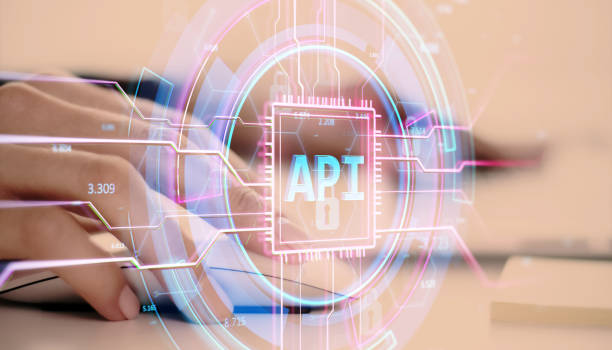What is Artificial Intelligence and What are its Applications?
Artificial intelligence (#AI) is a branch of computer science that seeks to create systems that can perform tasks that usually require human intelligence.
These tasks include learning, problem-solving, pattern recognition, natural language understanding, and decision-making.
Artificial intelligence is essentially an attempt to simulate human cognitive processes in machines.
The applications of artificial intelligence are vast and affect almost all aspects of our lives, including:
- Medicine: diagnosing diseases, developing drugs, and providing personalized care
- Transportation: self-driving cars, optimizing routes, and managing traffic
- Finance: detecting fraud, managing risk, and providing financial advisory services
- Education: providing personalized learning and automated assessment of assignments
- Manufacturing: automating processes, controlling quality, and predicting failures
The ultimate goal of artificial intelligence is to create systems that can not only perform specific tasks but are also capable of learning, adapting, and solving new problems.
This requires the development of complex algorithms and models that can analyze data and make intelligent decisions.
How much does losing business leads due to an unprofessional website cost you? Solve this problem forever with professional corporate website design by Rasaweb!
✅ Increased credibility and trust with potential customers
✅ Easier attraction of new business leads
⚡ Get a free consultation right now!
Types of Artificial Intelligence in Terms of Functionality
Artificial intelligence can be divided into several main categories based on its functionality and capabilities:
- Narrow AI: This type of AI is designed to perform specific tasks and performs very well in that area.
Examples of this type of AI include voice assistants like Siri and Alexa, and recommendation systems on e-commerce websites. - General AI: This type of AI is capable of performing any task that a human can do.
General AI is still under development and has not yet been fully realized. - Super AI: This type of AI surpasses human intelligence and is capable of solving more complex problems that humans are unable to solve.
Super AI is still a hypothetical concept and does not currently exist.
The main difference between these types of AI lies in their level of capabilities and flexibility.
Narrow AI can only perform specific tasks, while General and Super AI are capable of performing a wider range of tasks and can adapt to new situations.
Machine Learning and its Role in the Development of Artificial Intelligence
Machine Learning is one of the main sub-branches of artificial intelligence that allows systems to learn from data without explicit programming.
In fact, machine learning is a collection of algorithms and models that can identify patterns and relationships in data and use them for prediction or decision-making.
The main types of machine learning are:
- Supervised Learning: In this type of learning, the system is trained using labeled data.
In other words, the input data and the desired output are provided to the system, and the system learns how to map the inputs to the outputs. - Unsupervised Learning: In this type of learning, the system is trained using unlabeled data.
The system must automatically identify patterns and structures in the data. - Reinforcement Learning: In this type of learning, the system is trained by taking actions in an environment and receiving feedback in the form of rewards or penalties.
The system learns how to take actions that yield the most reward.
Machine learning plays a very important role in the development of artificial intelligence because it allows systems to automatically learn from data and improve their performance.
This allows AI systems to perform more complex tasks and adapt to new situations.
For example, machine learning can be used for face recognition, language translation, and autonomous driving.
| Machine Learning Type | Description | Examples |
|---|---|---|
| Supervised Learning | Training using labeled data | Spam email detection, stock price prediction |
| Unsupervised Learning | Identifying patterns in unlabeled data | Customer clustering, data dimensionality reduction |
| Reinforcement Learning | Training through feedback (reward or penalty) | Game playing, autonomous driving |
Click here to preview your posts with PRO themes ››
Challenges and Limitations of Artificial Intelligence
Despite significant advances in the field of artificial intelligence, there are still many challenges and limitations that need to be addressed.
Some of these challenges include:
- Need for large amounts of data: Many machine learning algorithms require large amounts of data for training.
Collecting and labeling this data can be time-consuming and expensive. - Interpretability: Some machine learning models, such as deep neural networks, are very complex and it is difficult to understand how they make decisions.
This can create problems in fields such as medicine and law. - Bias: If the training data is biased, machine learning models may also be biased.
This can lead to unfair and discriminatory decisions. - Security: Artificial intelligence systems can be vulnerable to cyber attacks.
Hackers can disrupt its performance by manipulating training data or attacking system infrastructure. - Ethical Issues: The development and use of artificial intelligence raises new ethical issues.
For example, who is responsible for the decisions made by an AI system? How can the misuse of artificial intelligence be prevented?
Overcoming these challenges and limitations is essential for the responsible development and use of artificial intelligence.
Are you worried about losing customers because you don’t have a professional online store?
Forget those worries with online store design by Rasaweb!
✅ Significant increase in sales and visitor-to-customer conversion rate
✅ Professional and user-friendly design that builds customer trust
⚡ Get a free consultation from Rasaweb
The Future of Artificial Intelligence and its Impact on Society
Artificial intelligence has the potential to create fundamental transformations in society.
In the future, we can expect artificial intelligence to play a more important role in our lives.
Some of the potential transformations include:
- Increased automation: Many repetitive and routine jobs will be automated.
This can lead to increased productivity and reduced costs, but it may also lead to job losses. - Improved Services: Artificial intelligence can help provide better and more personalized services in areas such as medicine, education, and transportation.
- Development of new technologies: Artificial intelligence can help develop new technologies such as self-driving cars, smart robots, and augmented reality systems.
- Solving global problems: Artificial intelligence can help solve global problems such as climate change, poverty, and disease.
However, in order to benefit from the advantages of artificial intelligence and prevent its potential dangers, we must pay attention to its ethical and social issues and develop appropriate policies and regulations.
Ultimately, the future of artificial intelligence depends on the decisions and actions we take today.
Artificial Intelligence in Iran: Current Status and Prospects
In Iran, artificial intelligence is also being considered as a key technology.
The government and the private sector are investing in this field and are making efforts to develop infrastructure and train specialized human resources.
Some of the applications of artificial intelligence in Iran include:
- Agriculture: Using artificial intelligence to optimize water consumption, predict crop yields, and diagnose plant diseases
- Health and Treatment: Using artificial intelligence for diagnosing diseases, providing online medical consultation services, and managing health data
- Industry: Using artificial intelligence for automating processes, controlling quality, and predicting failures
- Security: Using artificial intelligence for detecting cyber threats, monitoring traffic, and identifying suspicious individuals
Despite the efforts made, there are still challenges in the field of artificial intelligence development in Iran.
Some of these challenges include:
- Shortage of specialized human resources
- Limited access to data
- Lack of investment
- Legal and regulatory barriers
To overcome these challenges, it is necessary for the government and the private sector to cooperate more and develop and implement appropriate policies and programs.
Click here to preview your posts with PRO themes ››
Artificial Intelligence Development Tools for Beginners
To get started with artificial intelligence, you don’t need to be a professional programmer.
There are many tools available to help you start your AI projects without deep programming knowledge.
Some of these tools include:
- TensorFlow: is an open-source library for machine learning developed by Google.
TensorFlow has a simple user interface and comprehensive documentation that makes it suitable for beginners. - Keras: is a high-level API for TensorFlow that makes it easier to build and train machine learning models.
- PyTorch: is another open-source library for machine learning developed by Facebook.
PyTorch is popular among researchers and developers due to its flexibility and ease of use. - Scikit-learn: is an open-source library for machine learning that includes various algorithms for classification, regression, clustering, and dimensionality reduction.
- Google Colab: is a cloud-based development environment that allows you to run Python code for free and use machine learning libraries like TensorFlow and PyTorch.
Using these tools, you can quickly and easily start your AI projects and develop your skills in this area.
| Tool | Description | Advantages |
|---|---|---|
| TensorFlow | Open-source library for machine learning | Comprehensive, powerful, strong support |
| Keras | High-level API for TensorFlow | Easy to use, fast to develop |
| PyTorch | Open-source library for machine learning | Flexible, suitable for research |
| Scikit-learn | Open-source library for machine learning | Diverse algorithms, easy to use |
The Role of Data in Training Artificial Intelligence Models
Data plays a very important role in training artificial intelligence models.
In fact, machine learning models need data to learn and improve their performance.
The more training data and the higher its quality, the better the model can identify patterns and relationships in the data and make more accurate predictions.
There are different types of data that can be used to train artificial intelligence models, including:
- Text data: texts, emails, news articles, and user comments
- Image data: photos and videos
- Audio data: sounds and music
- Numerical data: financial data, sensor data, and statistical data
To use data in training artificial intelligence models, it is necessary to carefully collect, clean, and prepare the data.
This process includes the following steps:
- Data Collection: Collecting data from various sources
- Data Cleaning: Removing invalid, incomplete, and duplicate data
- Data Transformation: Transforming data into a format that the model can understand
- Data Labeling: Labeling data for supervised learning
Given the importance of data in training artificial intelligence models, it is necessary to pay special attention to this issue and select high-quality and appropriate data for training your models.
Does your current website display your brand’s credibility as it should? Or does it drive away potential customers?
Rasaweb, with years of experience in designing professional corporate websites, is your comprehensive solution.
✅ A modern, beautiful, and brand-appropriate website
✅ Significant increase in lead generation and new customers
⚡ Contact Rasaweb now for a free corporate website design consultation!
Ethical Issues Surrounding Artificial Intelligence
Artificial intelligence, despite all its benefits, also raises important ethical issues.
Some of these issues include:
- Bias: If the training data is biased, artificial intelligence models may also be biased.
This can lead to unfair and discriminatory decisions. - Privacy: Artificial intelligence systems can collect and analyze a lot of personal information.
This can raise concerns about individual privacy. - Accountability: Who is responsible for the decisions made by an AI system? If a self-driving car causes an accident, who is responsible?
- Autonomy: Should artificial intelligence systems be able to make decisions independently? What limits should there be on the autonomy of artificial intelligence systems?
- Impact on Employment: Automation can lead to job losses.
How can the negative impacts of automation on employment be prevented?
To solve these ethical issues, it is necessary to develop and implement appropriate policies and regulations.
Also, it is necessary to pay special attention to education and awareness about the ethical issues of artificial intelligence.
Click here to preview your posts with PRO themes ››
How Can We Become Experts in the Field of Artificial Intelligence?
If you are interested in working in the field of artificial intelligence, you can develop your skills in this field by taking the following actions:
- Learn the Fundamentals: Start by learning the fundamentals of computer science, mathematics, and statistics.
- Learn Machine Learning: Then, learn the concepts and algorithms of machine learning.
- Use Tools: Become familiar with artificial intelligence development tools such as TensorFlow and PyTorch and learn how to use them.
- Participate in Courses: Participate in online and in-person training courses and use the experiences of experts in this field.
- Do Projects: Do practical projects and apply your knowledge in practice.
- Read Articles: Read scientific and technical articles related to artificial intelligence and stay informed about the latest advances in this field.
- Participate in Conferences: Participate in conferences and symposia related to artificial intelligence and connect with experts and activists in this field.
With effort and perseverance, you can become an expert in the field of artificial intelligence and work in this thriving and widely used field.
Artificial intelligence needs your intelligence and ingenuity, so don’t hesitate.
FAQ
| Question | Answer |
|---|---|
| What is artificial intelligence? | It is a simulation of human intelligence in machines programmed to think like humans and imitate their actions. |
| What are the main branches of artificial intelligence? | It includes machine learning, deep learning, natural language processing, computer vision, and robotics. |
| What is Machine Learning? | It is a branch of AI that focuses on enabling systems to learn from data and identify patterns without explicit programming. |
| Give examples of AI applications in our daily lives. | Voice assistants (like Siri and Alexa), recommendation systems on Netflix and Amazon, self-driving cars, and facial recognition software. |
| What is Deep Learning? | It is a subset of machine learning that uses multi-layered (deep) artificial neural networks to process large amounts of data. |
| What is Natural Language Processing (NLP)? | It is a branch of AI that focuses on enabling computers to understand, interpret, and generate human language. |
| What are some of the ethical concerns regarding AI? | They include bias in data, privacy, job losses, and liability in case of errors. |
| What are the main benefits of AI? | Increased efficiency, improved decision-making, automation of repetitive tasks, and discovery of complex patterns in data. |
| How is AI used in healthcare? | In diagnosing diseases, discovering drugs, analyzing medical images, and personalizing patient care. |
| How do you see the future of AI? | It is expected to continue developing at a rapid pace, affecting all aspects of human life, from industry to education and entertainment. |
And other services of Rasa Web Advertising Agency in the field of advertising
Smart website development: An effective tool to analyze customer behavior with the help of Google Ads management.
Smart conversion rate optimization: An innovative platform to improve click-through rates with a SEO-driven content strategy.
Smart data analysis: A professional solution for digital branding with a focus on smart data analysis.
Smart custom software: Professional optimization to analyze customer behavior using attractive user interface design.
Smart advertising campaign: A novel service to increase website traffic by optimizing key pages.
And more than hundreds of other services in the field of internet advertising, advertising consulting and organizational solutions
Internet Advertising | Advertising Strategy | Advertorial
Resources
Artificial Intelligence Basics: A Short Guide
,Applications of Artificial Intelligence in Various Industries
,What is Artificial Intelligence and What are its Applications?
,What Changes Will Artificial Intelligence Have in 1403?
? To rise to the top in the digital space and reach more audiences, Rasaweb Afrin Digital Marketing Agency smooths the path to your business’s success by offering services such as responsive website design and professional optimization.
📍 Tehran, Mirdamad Street, next to the Central Bank, South Kazerun Alley, Ramin Alley No. 6












